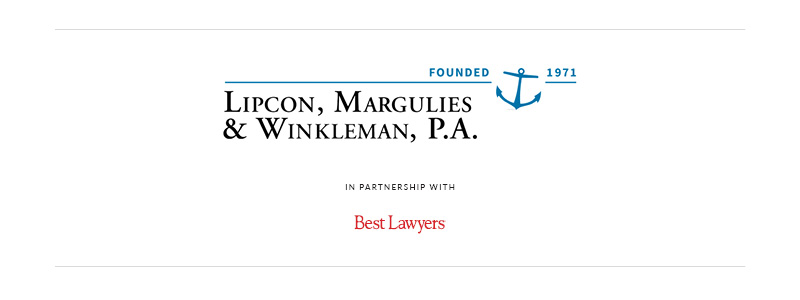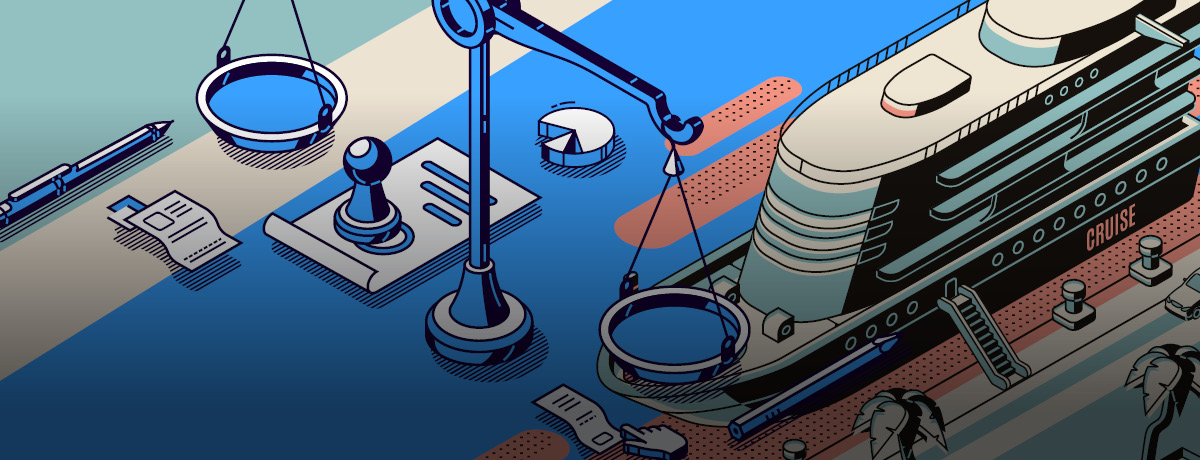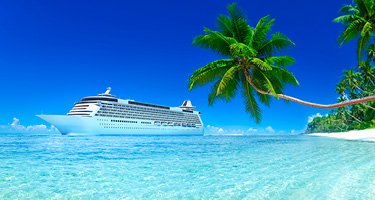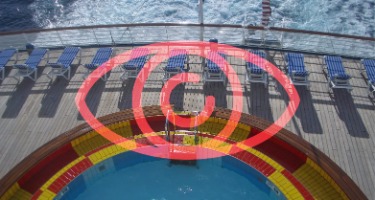As major cruise lines resume their services, it will mark the beginning of a fresh wave of civil litigation suits stemming from injuries suffered while at sea – from sexual assault to illness and fatal falls. Following their injury, a victim will often hire an injury attorney first in the hopes of securing justice and compensation from the cruise line and other defendants. But some lawyers may be in over their heads if they litigate these complex maritime injury claims alone.
Charles Lipcon, founder of the Miami, Florida-based maritime law firm Lipcon, Margulies & Winkleman, P.A. has successfully collaborated with many referring injury attorneys over the years to secure justice for clients. Named by Best Lawyers as the 2020 “Lawyer of the Year” for Admiralty and Maritime Law in Miami, Lipcon began his legal career in the early 1970s as an injury attorney. Following favorable resolutions litigating cargo matters, he transitioned to almost-exclusively litigating maritime and admiralty claims, which coincided with the emergence of the cruise line industry. His firm has since secured more than $300 million for clients injured while in water or on cruises.
From an office just a seashell’s throw away from Miami’s ports, Lipcon reflected on some of his successful collaborations with referring injury attorneys and detailed how this relationship can better serve passengers and crew members injured on cruises.

Why should injury attorneys refer maritime law cases?
I began my career as an injury practitioner and I truly believe that most injury lawyers do not secure enough compensation in maritime matters – simply because they do not have the experience.
A general injury lawyer could accept the case, but would need to assess how successful they would be, especially if they do not routinely handle maritime and federal law. I know of injury lawyers who make promotional videos online claiming they can take on cruise line matters, but consistently lose. Others have secured five-figure results in cases where, had they referred a maritime lawyer, could have won six- and possibly seven-figure awards.
We are dealing with tragedies and costly catastrophic injuries that require surgeries and years of rehabilitation. A client’s life or health should not be left to chance.
What is the traditional dynamic between your firm and a referring attorney?
It is the highest honor when another lawyer refers us because they have done their research and determined that our firm will do the best possible job for the client. It sets a positive and professional tone and we always aim to live up to our reputation.
After an initial consult, they provide us with the facts and documents. If we accept the case, the referring lawyer signs contracts with us and then, under Florida Bar rules, we pay them a 25% referral fee.
That does not mean the injury lawyer bows out from the case.
Correct. The referring lawyer remains a key figure throughout the lawsuit, because they are still hired by the client, after all. They typically remain our primary contact when communicating with the injured victim. We share ideas and information and typically work well together because our goals are aligned. And they pay close attention because it’s their chance to learn more about maritime and admiralty law.
How is filing an injury or wrongful death claim that occurred on a cruise unique from other settings?
Federal maritime laws govern over bodies of water. Passengers come from all over and even if they are injured on a ship that left from California, the case might be held in Florida if that is where the cruise line’s corporate headquarters are located. And many cruise line offices in the United States are based in Florida. Further, there may be foreign involvement depending on where the boat is registered and if the injury occurred in international waters.
The referring attorney usually cannot spend the time or resources traveling to and from Florida. We are strategically located near the federal courts because our practice is devoted to maritime and admiralty law.
What is the timing for filing claims against cruise lines?
For adults who were injured, there is a notice requirement of six months, followed by one year to file the suit. Minors under 18 years old have a different set of rules. Crew members typically have three years to file a suit.
The injury lawyer can file or make the referral before filing, but it requires urgency, and there is a lot of documentation needed in the way of incident reports and medical records. It is worth stressing that this rule is not flexible. You will not get a hearing if you do not act in time. Plus, the lawyer may be liable for the client’s losses if they miss the filing deadline.
Ultimately, it seems like lawyers who are honest with themselves and refer maritime cases – instead of litigating them – can provide the best possible client service.
Just as I would refer an aviation suit, a general injury practitioner would do right by the client and refer the case when it’s outside their wheelhouse. Otherwise they risk losing the case or leaving a lot on the table, which is unfortunate for everyone and makes clients’ physical and mental recoveries much more challenging.
The best strategy for an injury lawyer with a cruise ship claim would be to align with a maritime firm. In addition to the financial incentive, it will better ensure that justice and maximum compensation is secured for the client.
This article was written in partnership with Lipcon, Margulies & Winkleman, P.A.
Lipcon, Margulis & Winkleman, P.A.
One Biscayne Tower, Suite 1776
Miami, FL 33131
888-202-4192
www.lipcon.com




























